How meticulous planning and knowledge-sharing inspired VRR’s latest RAP.
Carving out a niche by transporting fresh, chilled and frozen food products to the inflight catering market is no easy task. This sector is highly competitive and well known for tight turnaround times and high safety standards. Yet that’s just what Skycooler has done. The temperature-controlled containers that the London-based company leases to airlines have moved a staggering 3.5 million airline meals around the world since 2005.
Over the years, Skycooler has earned an excellent reputation for reliability; it counts a major European flag carrier among its customers. Its success in leasing, maintaining, and repairing temperature-controlled containers for catering operations can be boiled down to three key ingredients: supply chain knowledge, temperature management knowledge and meticulous planning.
So, in 2019, when Skycooler’s fleet of RAP containers were edging towards retirement (they have an average lifespan of about 10 years), founder and CEO Jorgen Veslov knew he had to make timely arrangements. His customers demand 100% quality and reliability from his cool containers, so the continuation of Skycooler’s cold chain service depended on him getting the right replacements from the right supplier at the right time.
“Inflight catering is a fast-moving, around-the-clock market, and it depends entirely on quality equipment and tight supply chain management,” explains Veslov. “Our customer’s container movements are planned a year ahead and often in 24-hour slots. Leaving the decision to replace the older RAPs until the last minute was simply not an option. I needed to future-proof my business.”
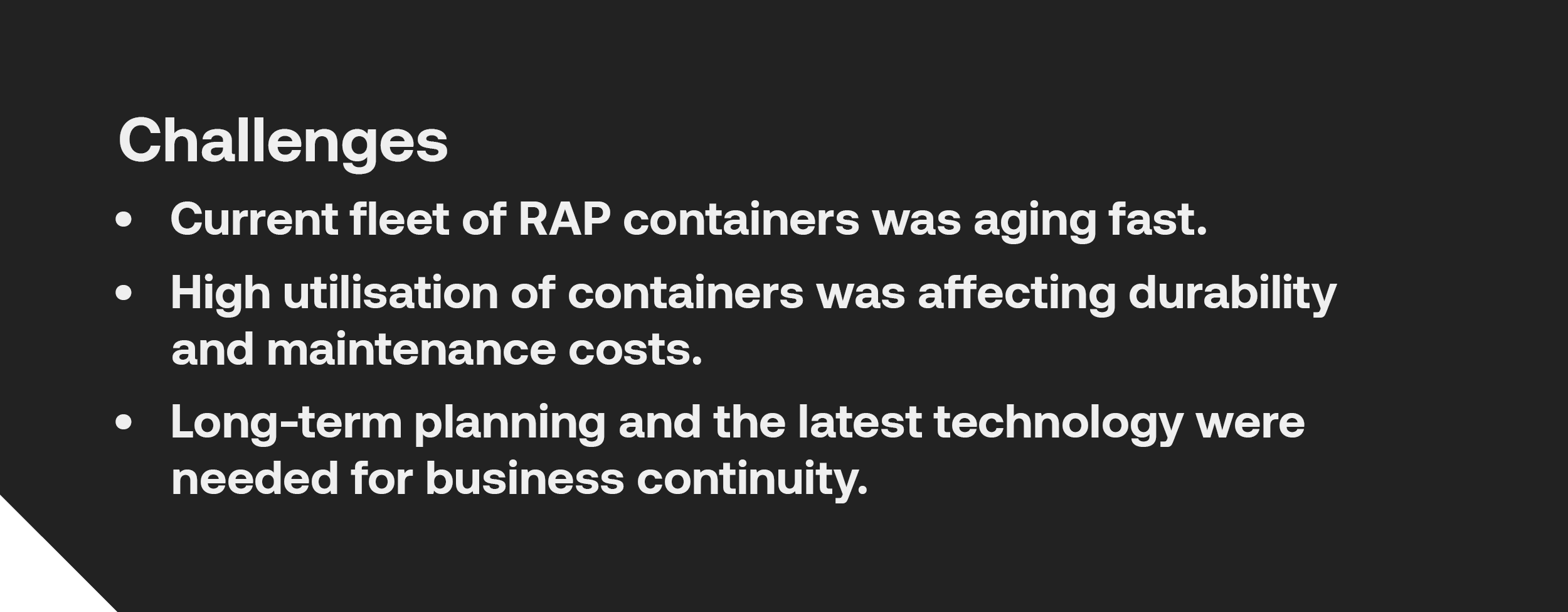
When failure is not an option
First, Veslov had to choose who would supply his new RAP containers. “When I’m looking for a partner—and I do see suppliers as partners—price is not the limiting factor,” says Skycooler’s CEO. “It’s reliability. Without this, the supply chain weakens and breaks. That’s why I’ve used only VRR containers since 2005. They have thicker panels and equal internal pressurisation, which is perfect for keeping food at 4oC. Plus, they’re extremely dependable.”
Reliability is certainly a trademark of Skycooler, which is why Veslov places so much emphasis on this quality. His company is unusual in that it has no spare containers sitting around the warehouse. One hundred per cent of the ULD fleet is in operation at all times. That utilisation rate, which is virtually unheard of in the ULD leasing market, requires fast turnaround times and quality containers.
“However, even Skycooler containers are subject to incidents and damage, so we utilise VRR’s Recommended Spare Parts solution,” adds Veslov. “This is purchased and maintained throughout the service life of our containers. It not only guarantees an MRO turn-around-time of 3 to 7 business days but also gives us parts and repairs that are unique to our customers’ operations.”
No substitute for the RAP’s volume, strength and versatility
Having decided that VRR would remain his supplier of ULDs, Veslov turned his attention to the container itself. The decision to keep using the RAP was simple. The alternative—the RKN—may be the workhorse of temperature-controlled transportation, but the RAP’s much larger capacity is perfectly suited to the catering industry.
The RAP is also designed to withstand the considerable physical handling that it’s subjected to at loading points, on trucks, on high loaders and in planes. Not only that, its multi-purpose construction provides an easy interface between all supply chain parties and a wide range of aircraft. In terms of container type, there really was no substitute.
Even so, ordering the new RAPs presented an ideal opportunity to add some innovative features. The CEO likens it to ordering a new car. If the one that you’ve been driving around for the last few years has never let you down, you want to stick with the same brand and model. However, you’d naturally like your replacement to have the latest comfort and safety features so that it will get you through the next few years.

A collaborative approach to customising the RAP
So what features did Veslov want for his new RAPs if the containers are to perform exactly the same tasks as the old ones, only better? “When it comes to ULDs, you’ve got to think at least ten years ahead,” he says. “The containers I’m using now were designed in 2005. They’ve done a great job. Still do. But I wanted my new containers to have features that would continue to meet my customers’ requirements in 2029 and beyond.”
Veslov sat down with VRR’s experienced engineers to consider what improvements could be made to the RAP. The existing model already guaranteed that an airline’s fresh, chilled and frozen meals would be fit for human consumption even after 50 hours. However, it was agreed that the RAP could be more durable in order to reduce maintenance. The final design changes included:
- An upgraded Temperature Control Unit (TCU) to withstand internal moisture
- Redesigned loading doors to increase thermal performance
- A sealed and optimised floor panel with anti-skid compositions
- A removable, rechargeable battery pack to replace single-use batteries
A year after Veslov had decided to upgrade his ULD fleet, the order for ten new RAPs was placed. As with any redesign, there were a few engineering challenges. However, VRR managed to crack all these technical nuts in collaboration with Skycooler. It took the company just four months to modify and manufacture the containers.
The first four units of the revised model were delivered on time and in budget, with another six due to be delivered soon. What’s more, the optimised floor panel is now available to all VRR’s customers.
Impressive results thanks to long-term planning
Skycooler and its customers are already seeing the benefits of the new RAP. The sealed floor, with its multi-layered components and anti-skid material, have made the container more robust and catering trolleys are less likely to roll away when the plane moves. That not only makes it safer but also reduces considerably the time and money spent on maintenance over the years.
The rechargeable battery pack will eliminate an estimated annual usage of 15,000 D1 batteries, resulting in major savings and a reduced environmental impact for its customers. As for the new TCU, the previous problems with moisture have been eliminated, cutting maintenance even more.
The story doesn’t end there, however. Veslov is now discussing with VRR ways to eliminate the use of dry ice in future cool containers. This is something his biggest customer is very keen on as it will help reduce its CO2 footprint. VRR, which is continuously looking for new ways to improve its products, is happy to explore the idea.
“It’s quite simple why I choose VRR for my containers,” concludes Veslov. “Reliability, durability, build quality, an evolving design, and technical and spare part support are paramount requirements for Skycooler’s container services. VRR gives me all that. Even though I’m one of their smaller clients, they always listen to me, and they understand my need for long-term planning. It’s the perfect partnership.”
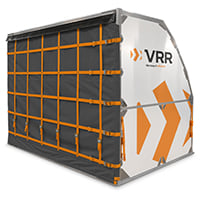
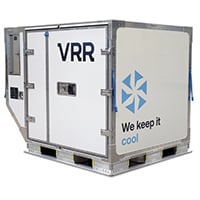
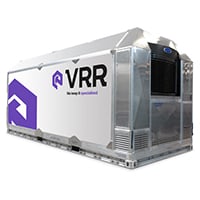
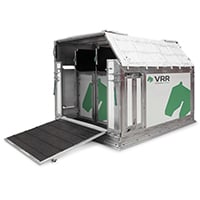
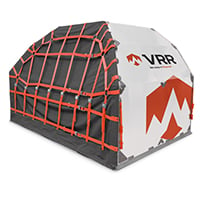
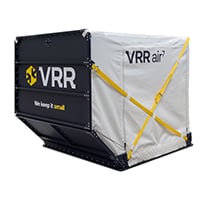

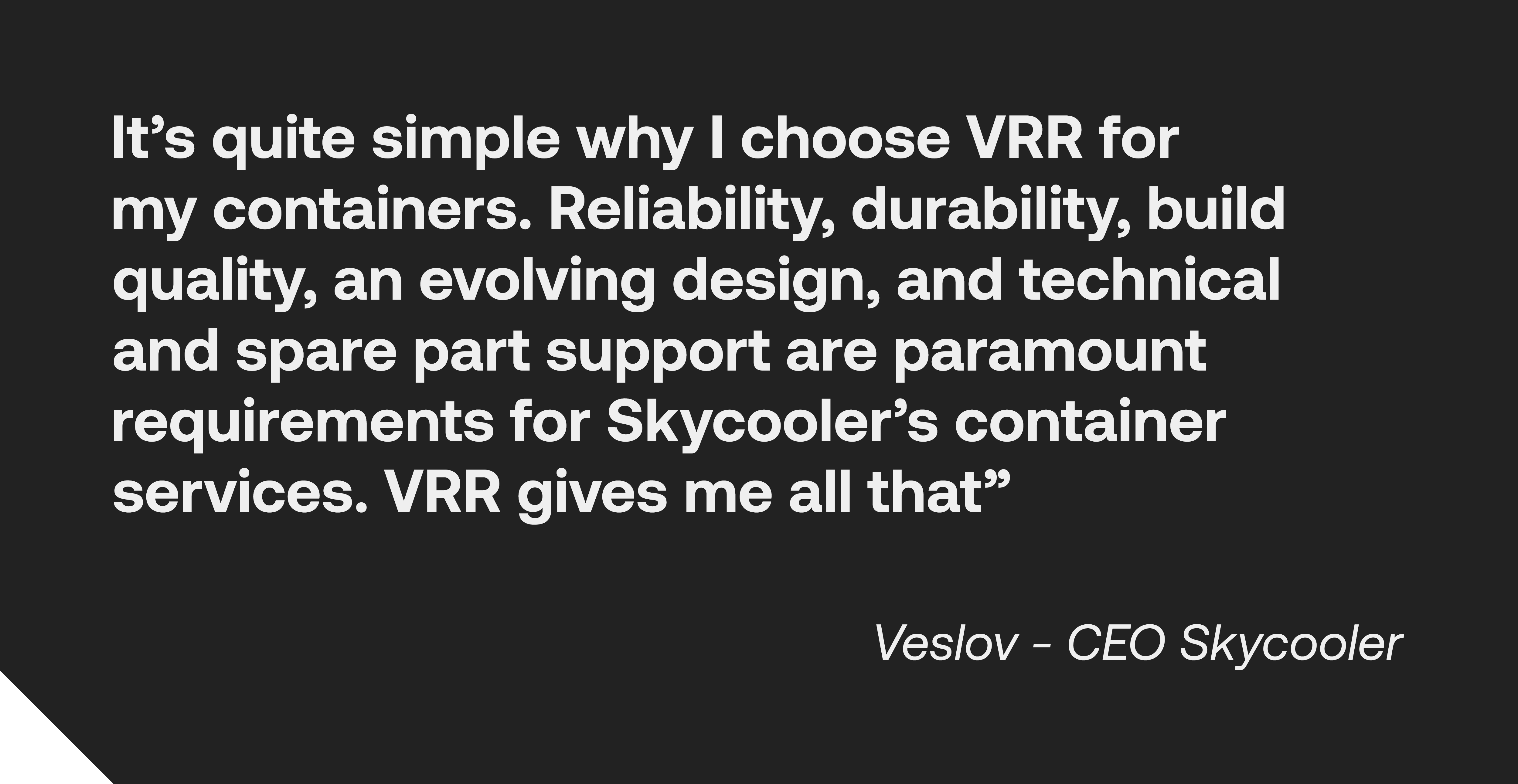
%20resize%20web.jpg)



